 As I scrolled down the page I became conscious that I was doing exactly the thing I was researching. My ‘normal’ concentration and attention to words, born of my lifelong love for seeing them unfold on paper, was wandering off and bouncing around.
As I scrolled down the page I became conscious that I was doing exactly the thing I was researching. My ‘normal’ concentration and attention to words, born of my lifelong love for seeing them unfold on paper, was wandering off and bouncing around.
There has been a good deal of research and publicity on how the way we read differs from book to screen. The research covers the way we gather, assimilate, remember and understand information and the results of some studies are startling, though you would have to read them all… preferably on paper, it seems… to get the full range of detail as they look at everything from empathy to engagement, from transportation, cognition, to the ability to reconstruct events.
This particular article was well crafted, engaging and interesting; the information pertinent… and yet there I was visually skimming the paragraphs, dipping in and out to extract information when I spotted key words… and astonished, when I pulled myself up and went back, at how much information I was actually missing altogether, bypassing or simply misinterpreting by failing to take in all the details given. I wasn’t reading.
Well, not properly… or not after the first thousand words or so.
Granted, it was a scientific paper and therefore not designed to capture and hold the emotions like a story, but I do find that while I am happy to learn and research online, for reading I want something I can hold. It needs to be personal.
 I love reading… I always have. I love learning too and when the advent of the technological revolution placed a world of knowledge at my fingertips I couldn’t wait to explore. I will never forget the very first, magical moment when I opened a browser and began to look around in awe at the sheer volume of knowledge suddenly available…instantly… on every subject in the known and speculative universes, as well as a few fictional ones too. It was like gaining admission to an infinite library that held every human thought ever recorded. Yet, of course, in comparative terms there was really very little out there at the time when contrasted with what is now accessible.
I love reading… I always have. I love learning too and when the advent of the technological revolution placed a world of knowledge at my fingertips I couldn’t wait to explore. I will never forget the very first, magical moment when I opened a browser and began to look around in awe at the sheer volume of knowledge suddenly available…instantly… on every subject in the known and speculative universes, as well as a few fictional ones too. It was like gaining admission to an infinite library that held every human thought ever recorded. Yet, of course, in comparative terms there was really very little out there at the time when contrasted with what is now accessible.
I remember too the naïveté with which I first approached that information. It says so on the internet, so it must be based in some kind of truth… You can stop laughing now…With a book, you see, you always have that assurance. That is not to say that everything you read in books is true, of course… far from it… but what you do have is context from which you can discern the level of truth, fact or fiction involved.
 You know when you are reading a text book or a fantasy. You can, by reading and getting a feel for the author, quickly decide when a theory is purely speculative, personal opinion, diatribe or sensationalism. You can tell whether they are writing from research, experience or imagination, fact or fiction, objective reality or inner truth. Language allows you to pick up on a writer’s personality and see just where it creeps in to colour their words and thoughts. With random pages of the internet that context is missing, the acquired familiarity with a writer’s voice does not grow as we skip from page to page and unless we are regularly following a particular writer online we are seldom even aware of their names.
You know when you are reading a text book or a fantasy. You can, by reading and getting a feel for the author, quickly decide when a theory is purely speculative, personal opinion, diatribe or sensationalism. You can tell whether they are writing from research, experience or imagination, fact or fiction, objective reality or inner truth. Language allows you to pick up on a writer’s personality and see just where it creeps in to colour their words and thoughts. With random pages of the internet that context is missing, the acquired familiarity with a writer’s voice does not grow as we skip from page to page and unless we are regularly following a particular writer online we are seldom even aware of their names.
For me that seems to take some of the emotion… some of the empathy… out of the equation. And that equation is, after all, not a mathematical one but a very personal relationship between the mind and heart of both a reader and a writer, particularly with creative works.
Perhaps it has something to do with continuity? A single click can erase all trace of a viewed screen; a book sits there quietly waiting for you to pick it up again. It isn’t going anywhere. It has a place both in your attention and in your world.
 There is a permanency about books too. Online work can be quickly edited and changed… the hundred year old books that sit on my shelves will never change. Where factual information is concerned this ability to update and correct in line with current knowledge is undoubtedly a good thing, but a creative work carries the words of its creator into a future unknown, standing timeless as itself. It may become a dated relic… it may, like Dickens or Plutarch, for example, provide a window into a bygone age; it always preserves the mind of the writer in that scintilla of time when he wrote the final word.
There is a permanency about books too. Online work can be quickly edited and changed… the hundred year old books that sit on my shelves will never change. Where factual information is concerned this ability to update and correct in line with current knowledge is undoubtedly a good thing, but a creative work carries the words of its creator into a future unknown, standing timeless as itself. It may become a dated relic… it may, like Dickens or Plutarch, for example, provide a window into a bygone age; it always preserves the mind of the writer in that scintilla of time when he wrote the final word.
Apart from anything else there is a physical presence to a book. I have a Kindle and love it… the fact I can read any one of hundreds… thousands… of stored, possibly rare or out of print, books anywhere at any time is wonderful, either on the device itself or via the app for the phone. Many a queue or waiting room has disappeared, melting into a fantastic landscape at the flick of a button. And e-books are so much cheaper as a rule than their paper counterparts… The thing is, though, that I will usually pack the Kindle for travelling, and read a paper book instead.
Call me old fashioned, but it is a landscape thing. With e-readers, pages just scroll, numbered or not, across a flat screen. With a book you can feel the turning of a page, the progression from start to finish as the weight of paper passes from right to left. You can recall exactly where that fabulous phrase was placed on the page… you can curl up with the smell of paper and the sound of it, the touch of it… There may be old notes in margins, intriguing scraps of paper with arcane messages left as redundant bookmarks by previous readers. A book is a tangible portal into an alternate reality… and part of an ongoing story… and as a reader I walk through that portal and who knows where the story might lead? Every book is an adventure…
I know. I’m a sad case.





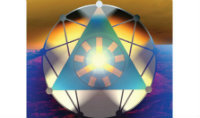

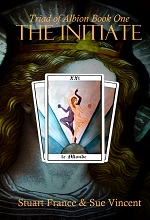
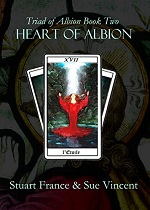

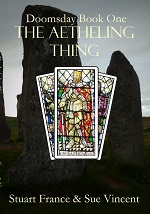
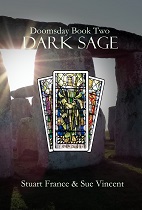
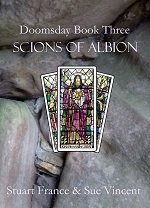
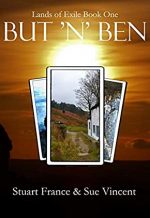


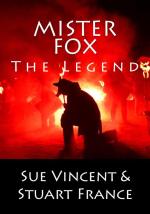

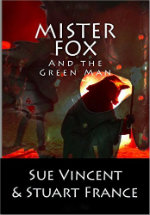
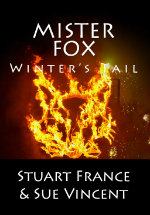
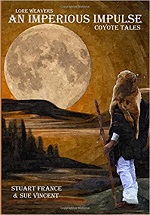

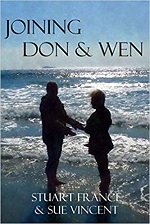

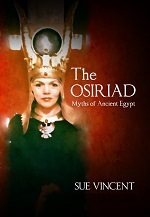
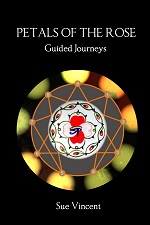

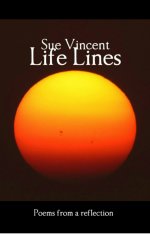
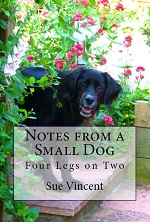

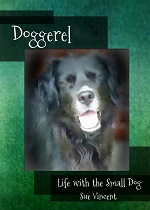

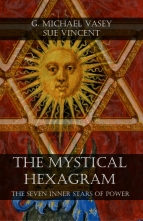

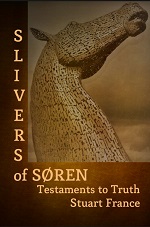
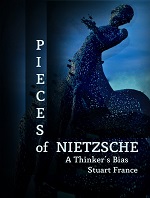
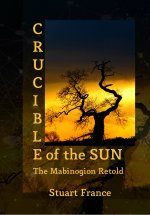
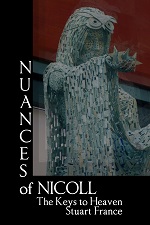

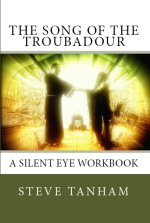
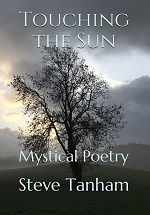

I totally understand what you mean Sue.
For convenience I use my kindle as I have no storage for more books. But I miss holding a physical book.
I make sure I have the percentage read function on … But it’s not quite the same.
Yet the accessibility of an ebook is just so wide. With my kindle, if I forget it, I can use the app on my phone and get to the exact same spot in my current read. I’m.notbine to read more than one book at a time, so this is essential!!!
LikeLiked by 1 person
I do enjoy the convenience of Kindle…especially in a queue or waiting room when I haven’t got a book with me 🙂
LikeLike
Yes! A Kindle really help with those times!
LikeLike
I use my phone 😉
LikeLike
If I forget my kindle then my phone is definitely brought into action!!!
LikeLike
Reblogged this on Chris The Story Reading Ape's Blog and commented:
Go to the original blog post and let Sue know YOUR thoughts on this topic :d
LikeLiked by 1 person
Reblogged this on newauthoronline and commented:
A thought-provoking and well-written article by Sue Vincent regarding the merits and demerits of reading online and losing onself in a traditional, paper book. Being blind and unable to read print, I welcome the ability to read material online using my screen reading software (Job Access with Speech or JAWS) which converts text into speech and braille on a Windows computer. I also appreciate the text to speech facility on my Kindle and have spent many happy hours having books read aloud to me. Also, having recently purchased an Amazon Echo, I have begun (after several years of not having done so) to, once more lose myself in an audio book from Audible (I’m currently reading Austin’s “Emma”). Having said all that, I find that there is something uniquely special about losing oneself in a paper book. In my bedroom, living room and the study in which I am now writing are bookcases full of braille books from which I derive tremendous pleasure. However the bulk of braille (“The New Oxford Book of English Verse” runs to some 10 braille volumes) means that I can only own a tiny percentage of the books in that format that I would (where I to be a print reader) be able to own. Additionally only a tiny percentage of the books available in print have been transcribed into braille (including my collections of poetry “My Old Clock I Wind and Other Poems” and “Lost in the Labyrinth of My Mind”). Kevin
LikeLiked by 2 people
There is something lovely about a book as a physical artifact. I run on both – I have a kindle – which I love – for holidays, journeys, etc, but I like going to the library and I still buy print books. I like being able to pass them on to people. I’m ALWAYS jolted by the end of an e-book, even though I keep an eye on the percentage left. With a print book, you can physically feel the ending coming!
LikeLike
I agree with you, Sarah… the ‘early warning’ of thinning pages is part of the experience…
LikeLike
Reblogged this on anita dawes and jaye marie.
LikeLike
Thanks, Jaye x
LikeLiked by 1 person
Although I can read an ebook, so much of it doesn’t register. My eyes rebel too. I can enjoy a print book so much more. I use them for editing too, as its so much easier to spot trouble!
LikeLike
You cannot beat a hard copy for editing… but I do tend to forget to edit and just read 😉
LikeLiked by 1 person
You need an editor’s head, I’d lend you mine but I shall need it soon…
LikeLike
I already do 😉
LikeLiked by 1 person
I find it difficult to read from a screen and much prefer a book. I used to read a lot, but not now. Though saying that, I am getting back into the swing of it. I was in a bookshop yesterday and noticed one of my favoured authors from years ago. One thing I have to be careful about is that sometimes they change the titles when republishing, so I needed to ascertain if it was one I’d already read. The shop was crowded with some of the most ignorant people I have ever come across, deliberately cutting in front of me and stopping thus blocking my view and access!
I have two books lined up to read now and actually looking forward to it!
LikeLike
I never mind re-reading books, as there is always something I missed or was not ready to appreciate first time around.
LikeLike
I miss a lot of my favourites as we gsve them all away having no room for them on the boat. The few I’ve read recently have been disappointing in one way or another, but the one I’m reading now holds promise and I might finish it tonight!
LikeLike
Fingers crossed for you…
LikeLike
I intend to do a review when I’ve finished it.
LikeLike
I do so love the smell and feel of a real book but recently have found the true advantage of my Kindle.A couple of months ago i noticed deterioration in my sight, the words no longer jumped off of the page. The dreaded cataract was upon me. The advantage with my Kindle is the control for increasing the size of font has been a great help. At least I suffer fewer distractions as I cant see anything else but the words on the screen so no jumping about as described.
LikeLike
My son has severe sight problems since he was stabbed and, for a long time, he could not read…and he had always been a bookworm. Kindle has opened books for him again and for that I am truly grateful.
LikeLiked by 2 people
I quite agree ❤
LikeLike
❤
LikeLiked by 1 person
Reblogged this on Not Tomatoes.
LikeLike
Thanks, Alethea xx
LikeLiked by 1 person
You’re welcome ❤
LikeLiked by 1 person
I have my feet in both of these worlds. Digital books have their own greatness, but a solid book in my hands still wins. We’ve had a long discussion at my house that schools have too much digital material and not enough physical textbooks and other assignments. Everything is online. A different subject, but related in the sense that learning and absorbing anything we read is best done (my opinion) by looking at the pages in a real book! Great post!
LikeLike
We are training other areas of the brain whilst reading a physical book too… memory, spatial awareness, pattern recognition and information retrieval. That, sadly, doesn’t happen with an ebook.
LikeLiked by 1 person
I prefer to hold an actual book in my hands. Reading small chunks of text on the screen is fine, but for a full book, I want to turn the paper pages.
LikeLike
So do I, Becky 🙂
LikeLiked by 1 person
Sue, I have to agree with you. I’m a sad case too. 😉 Hugs.
LikeLike
I am not at all surprised, Teagan 🙂 Hugs.
LikeLike
I love books, but can’t hold them open. The flat screen helps me to be more able to read. And as a person with add, whether scrolling or turning pages I always skim and have to go back.
LikeLike
I have to say an e-reader is far easier for people with problems holding books open. I have arthritis and tendon damage, and sometimes I struggle.
LikeLiked by 1 person
I so agree, Sue. I do use a kindle when I’m on holiday, travelling and the hairdressers (which, alas, means I now never know what the Kardashians are getting up to) but I still read, and buy, print books. I don’t think poetry translate well to kindle. I know you can bookmark pages but that’s not the same as flipping through or opening a book at random. I love the cartoon about reading being how people instal new software in their brains 🙂
LikeLike
Some things do not seem to work right as an ebook… including my ability to find things in random books from memory! I know what a page ‘looks like’ and can locate it in a paper book, even years after having read it.
Pity about the Kardashians though (falls over laughing….) 😉
LikeLike
I also notice the difference between a paper book and ebook, Sue. There is something “more real” or a sense of “weightiness” with a paper book that ebooks seem to lack. And they don’t vanish when I move onto the next read, they linger in a special place on my bookshelf, reminding me of where I’ve been. I read mostly on kindle now, but when I LOVE a book, I’ll buy the paper version too. 🙂
LikeLike
I also buy the paper versions, even when I have read the ebook first. And always if I have read a free ebook and enjoyed it. It seems only fair.
LikeLiked by 1 person
I love books but I don’t like having bookshelves so it’s a kindle for me. Actually, it’s their app on an iPad – it’s like my Swiss Army Knife of iTools. It did take me a long time to get around to trying ebooks though, don’t know why now.
LikeLike
I love my rooms to be lined with books… on the rare occasions when they have been banished to boxes and attics, I have felt like a bit of me had been amputated.
LikeLiked by 1 person
I have always preferred a proper book, Sue. The South African postal service and even our courier services are so chronic now, however, that the books often don’t arrive. As a result I have resorted to ebooks which are guaranteed to arrive. Thank goodness for modern technology.
LikeLike
There is an awful lot to be said for ebooks… I know Nick would be unable to read at all without them.
LikeLike
Nothing like curling up with a good book. And now that they know how bad ‘blue’ light is for our brains, inhibiting melatonin production, books should be the only reading past 8 pm. (I know, I don’t always heed this advice, but I try to!)
LikeLike
I never read ebooks late at night… though I admit to being online till ridiculous o’clock….
LikeLiked by 1 person
I love my kindle for reading on the go or late night reading, but digitals can’t replace the feel and personal connections to a story read with a print book in hand.
LikeLike
I agree, Bette… the ‘feel’ of a book is different and part of the experience.
LikeLike
I still have a love affair with print and paper, that tactile /feel/ of a book. But I simply can’t read them any more. My eyes have gone from short-sighted to longer sighted with age, and most print books are too hard to read, even with glasses. For me, the Kindle came along at just the right time.
I’m also a little baffled by the reading comprehension data. I’ve been using computers for so long I can’t even write a shopping list in long hand any more. I do all my research online, all my writing, everything, and I haven’t noticed any decline in my ability to focus. Then again, maybe it’s an age thing; I was in my early 30’s when I discovered computers so I guess my brain patterns were already set.
LikeLike
That’s interesting. I do much of my writing and research online too…and when I am really interested, focus is not lost. But stories? I need a paper book… though I wish the print would stop shrinking 😉
LikeLike
-grin- yeah, that shrinking print is a -cough- big -cough- problem. 😀
LikeLike
You should take something for that cough, you know 😉 😀
LikeLike
lmao! Honey and lemon. Yes ma’am. 🙂
LikeLike
We may need something stronger for that print 😉
LikeLike
Well, I do have this bottle of Cab Sav. Think it’ll do? 😀
LikeLike
It might help 😉
LikeLike
Care to join me? For therapeutic purposes only, of course. 🙂
LikeLike
Any time 😉
LikeLike
🙂
LikeLike
Reblogged this on Where Genres Collide.
LikeLike
Thanks, Traci 🙂
LikeLiked by 1 person
You’re welcome, Sue!
LikeLiked by 1 person
I totally get you Sue. There is nothing like reading a physical book, but for novels and fiction, I’m thrilled to have my Kindle, especially for traveling and overweight luggage with books. 😉 xx
LikeLike
I seldom get chance to read when I’m travelling. Seven hundred miles driving this weekend 😉 xx
LikeLiked by 1 person
Holy Moly!!!!!!!!!!!!!!!!!!!!!!! ❤
LikeLiked by 1 person
The only timeIèll read from a screen is when I have no choice… or when I don’t really want to invest in a book – for various reasons…
Old school all the way, for me.
LikeLike
I must say I prefer old school too…
LikeLike
📖📖🧡
LikeLiked by 1 person
I can immerse myself in a good story on either medium, (I just use stronger reading glasses with the paper ones) but for my favourite re-reads I have print copies … because, we only rent/lease ebooks, (AKA content) which is something that doesn’t seem to have stuck to the general public’s skulls yet. We’re probably the second last generation who will have had a visceral experience of what a bookshelf of print books is like. There will be outliers, of course, there always have been, who will preserve the ‘old traditions’, and for that I’m glad. 😀
LikeLike
I’m busily making sure that at least one more generation of my family will have paper books… my graddaughters are acquiring a collection 😉
LikeLiked by 1 person
Reblogged this on Have We Had Help? and commented:
How do you read? One word after another!!!
LikeLike
Always the best way 😉
Thanks, Jack. x
LikeLiked by 1 person
I read mainly on my iPad using my Kindle app. However, that’s mainly because of the cheapness of the books, not for real preference. In a book, if there’s something you want to check earlier in the book, you can easily flip back to find it. With a Kindle, or other electronic reading devices, it’s not so easy. Then you have to get back to where you were. With a book, you’ve left your finger in it, and don’t have to remember a ‘Loc’. which I can never do.
LikeLike
I have never managed to get the hang of page flipping electronically… one of the reasons I prefer paper. On the other hand, there are many out of print books available as ebooks these days… and many of them are so useful for research!
LikeLike
I love the smell, the texture, the feel of books. But it is too heavy for my already embattled wrists — and it doesn’t have a light — and I have not a quarter of an inch of room in my world for another book. In fact, I have books everywhere. Literally. I find them sometimes in places where they really should not be. But really, I don’t read anymore. I listen. Because when I listen, I hear the book at the speed of human speech. I can’t speed read over on part to get to the next. And my poor, weary eyes are grateful.
I love books. I almost never read anymore. But I listen closely.
LikeLike
I know what you mean about books getting in strange places!
I haven’t really got to grips with audiobooks yet. I still only listen when I am busy dong something else…and a physical book is a rest.
LikeLike
I have a kindle and yes, I love the access it gives me to thousands of books, then I remember the library where the books were free if you remembered to take them back on time. Erhm, skip over that part. So, I have my kindle and I have my books. To hold a book or to hold an electronic device that might or might not be beaming radiation to my brain? Think I’ll look out my library card. xxx
LikeLike
I miss libraries… and second-hand book shops…
LikeLike
Amazing post. There really something much nicer about having a physical book versus an electronic device. Electronic devices do have their benefits, and I have read on some of mine a fair amount. However, nothing can ever replace the feeling of having a printed book. There’s such more of an emotional connection that can be had with it.
LikeLike
Absolutely, Dejah… holding a book is an immersive sensual experience in the true sense of the word.
LikeLiked by 1 person
Definitely…tablets can’t replicate that
LikeLike
Never!
LikeLiked by 1 person